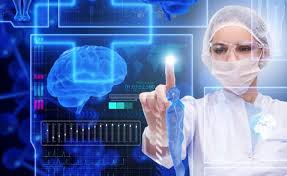Artificial intelligence (AI) has emerged as one of the most transformative technologies in recent years. It has the potential to revolutionize almost every aspect of daily life, from transportation and healthcare to entertainment and personal productivity. In this article, we will explore some of the ways in which AI is already improving our daily lives, and how it will continue to do so in the future.
 |
| artificial intelligence in modern technology |
- Personalized Recommendations
One of the most significant benefits of AI in daily life is personalized recommendations. AI algorithms can analyze vast amounts of data on user behavior, preferences, and habits to make highly accurate recommendations for products, services, and content. For example, streaming services like Netflix and Spotify use AI to suggest movies, TV shows, and songs based on users' viewing and listening habits. Similarly, online shopping platforms like Amazon and eBay use AI to suggest products based on users' purchase history and browsing behavior.
AI has enormous potential to transform healthcare by improving patient outcomes, reducing costs, and increasing efficiency. AI algorithms can analyze medical data to help doctors make better diagnoses, predict disease progression, and develop more effective treatments. AI-powered medical devices can monitor patients' health in real-time and alert doctors to potential issues before they become serious. AI can also help with administrative tasks, such as scheduling appointments and managing patient records.
- Smart Homes
AI is making our homes smarter and more convenient. AI-powered smart home devices can control everything from lighting and temperature to security and entertainment. They can learn users' habits and preferences and adjust settings accordingly. For example, smart thermostats can automatically adjust the temperature based on the time of day and users' schedules. Smart security cameras can detect and alert users to potential threats. Smart speakers can play music, answer questions, and control other devices with voice commands.
- Autonomous Vehicles
AI is also driving the development of autonomous vehicles, which have the potential to make transportation safer, more efficient, and more convenient. Self-driving cars use AI to analyze data from sensors and cameras to navigate roads, avoid obstacles, and make decisions in real-time. They can reduce the risk of accidents caused by human error and make transportation more accessible for people with disabilities or who live in areas without reliable public transportation.
- Personal Productivity
AI-powered personal productivity tools can help users stay organized, focused, and efficient. For example, virtual assistants like Siri, Alexa, and Google Assistant can answer questions, set reminders, and perform tasks with voice commands. AI-powered email tools can prioritize and categorize emails based on their importance and content. AI-powered scheduling tools can find the best times for meetings based on participants' schedules and preferences.
Conclusion
In conclusion, AI is already having a significant impact on daily life, and its potential is virtually limitless. From personalized recommendations to autonomous vehicles, AI is improving our lives in countless ways. As the technology continues to advance, we can expect even more innovative and transformative applications in the years to come. However, it is also important to recognize that AI raises ethical and social questions that must be carefully considered and addressed to ensure that the benefits of AI are distributed equitably and responsibly.

